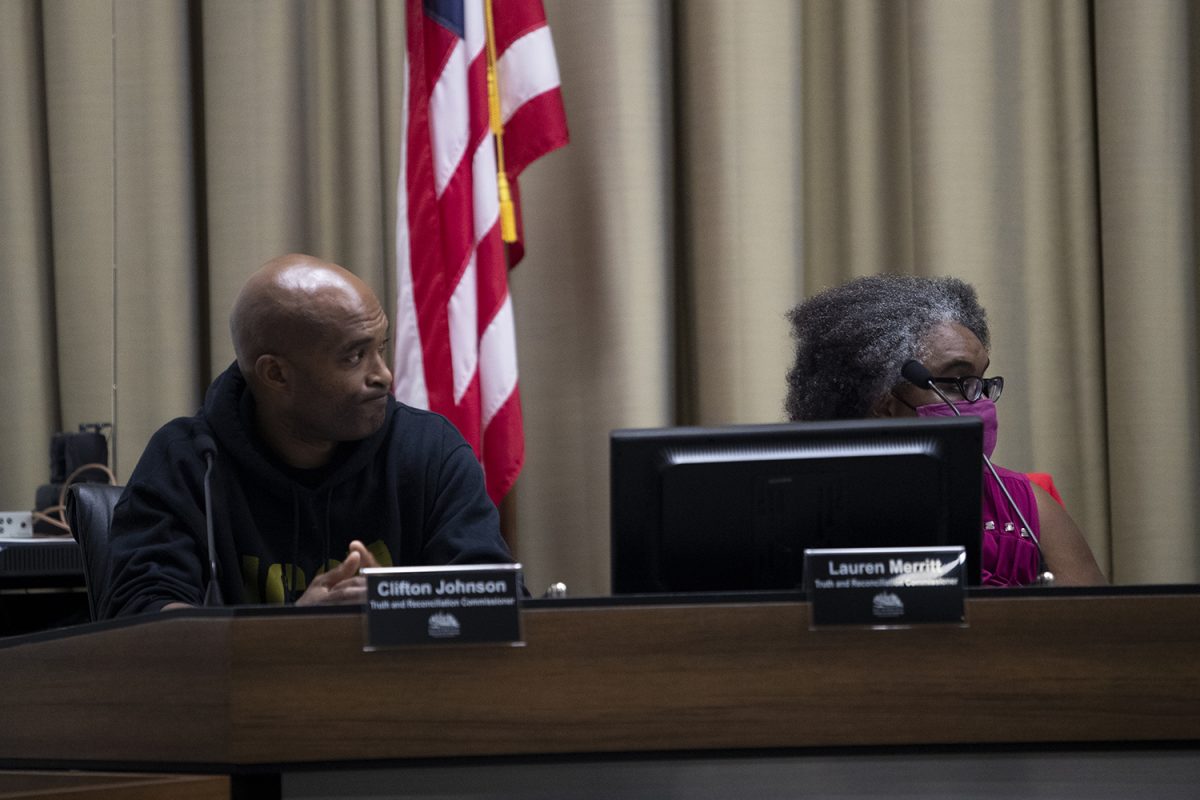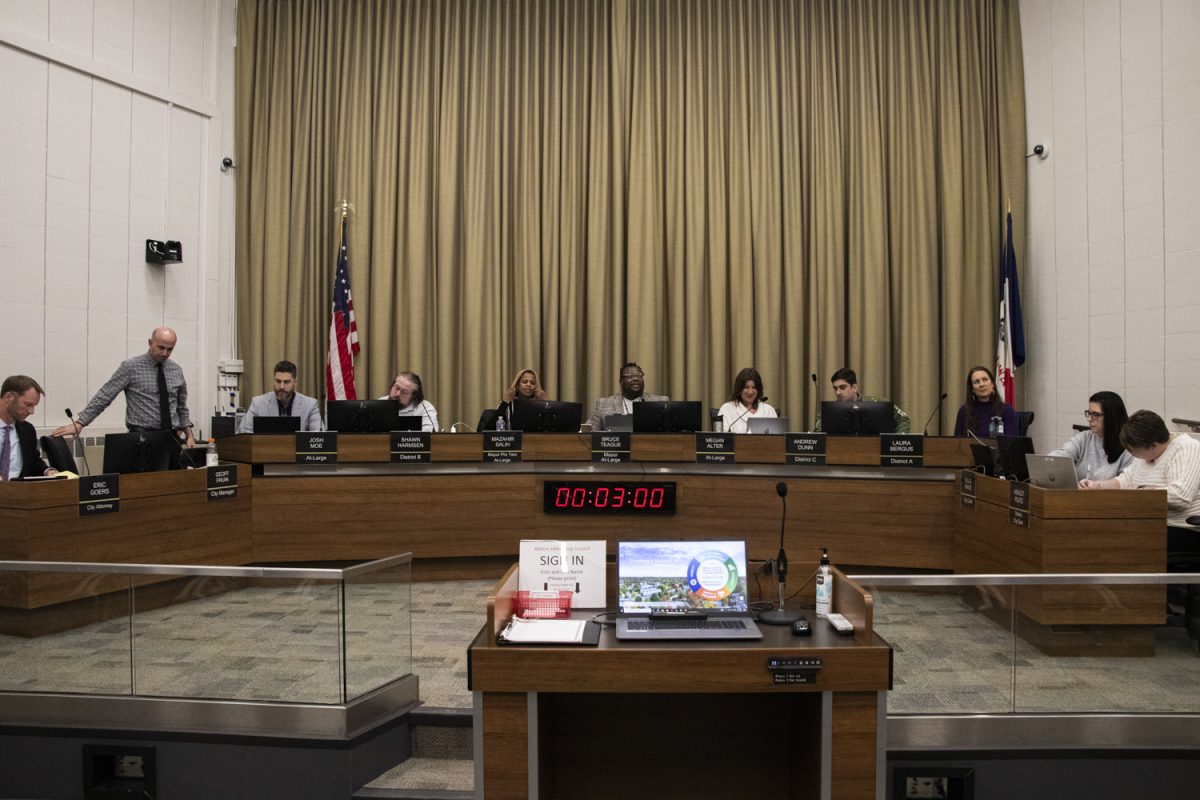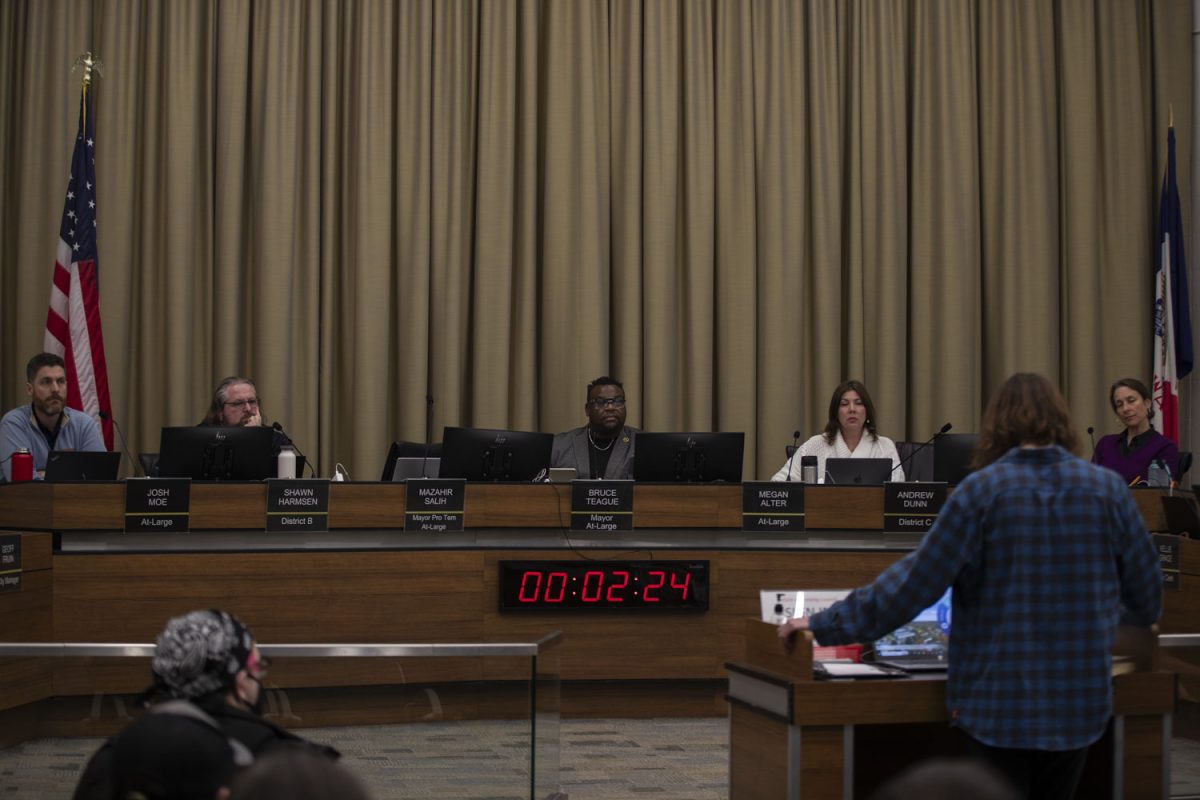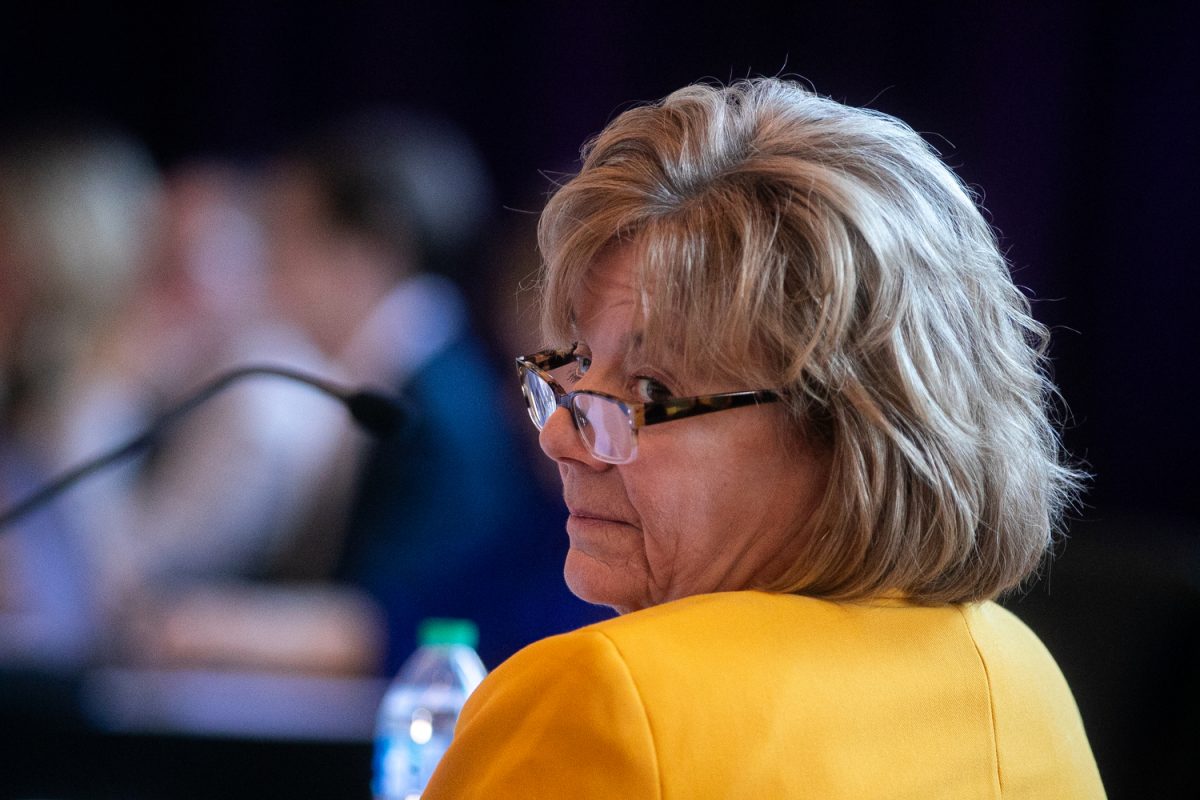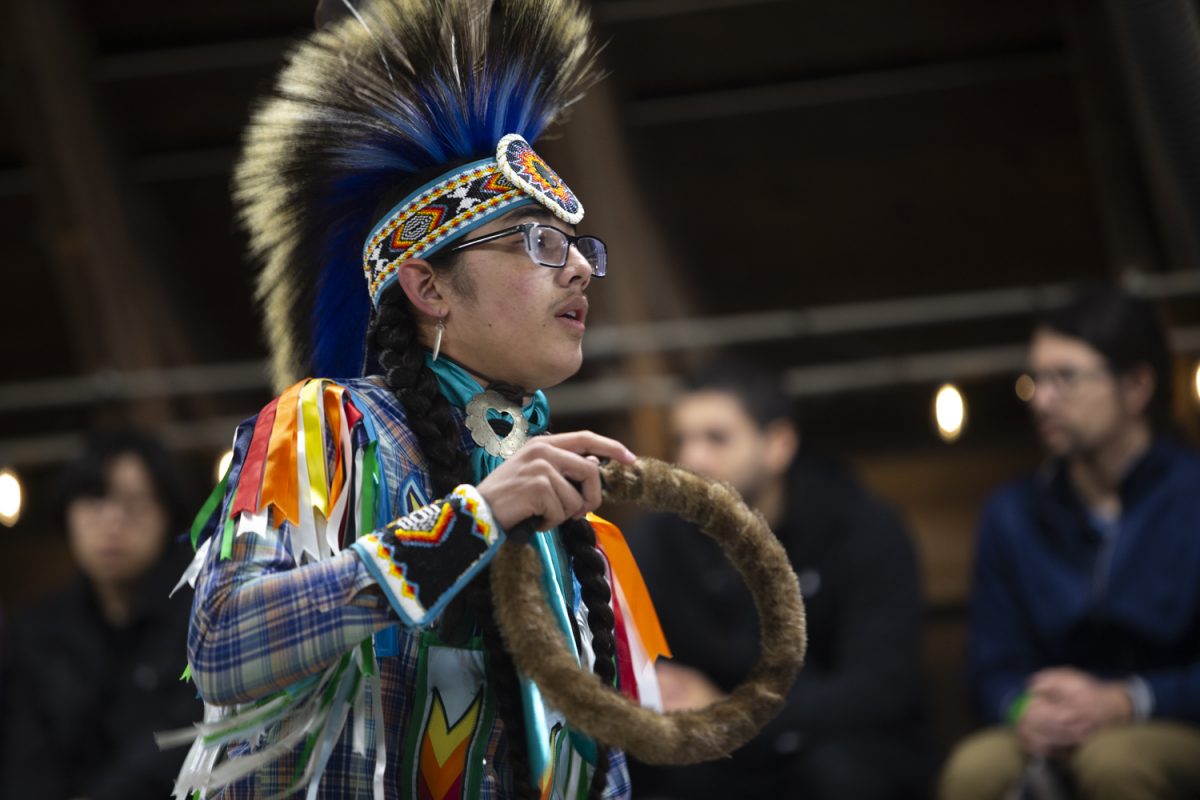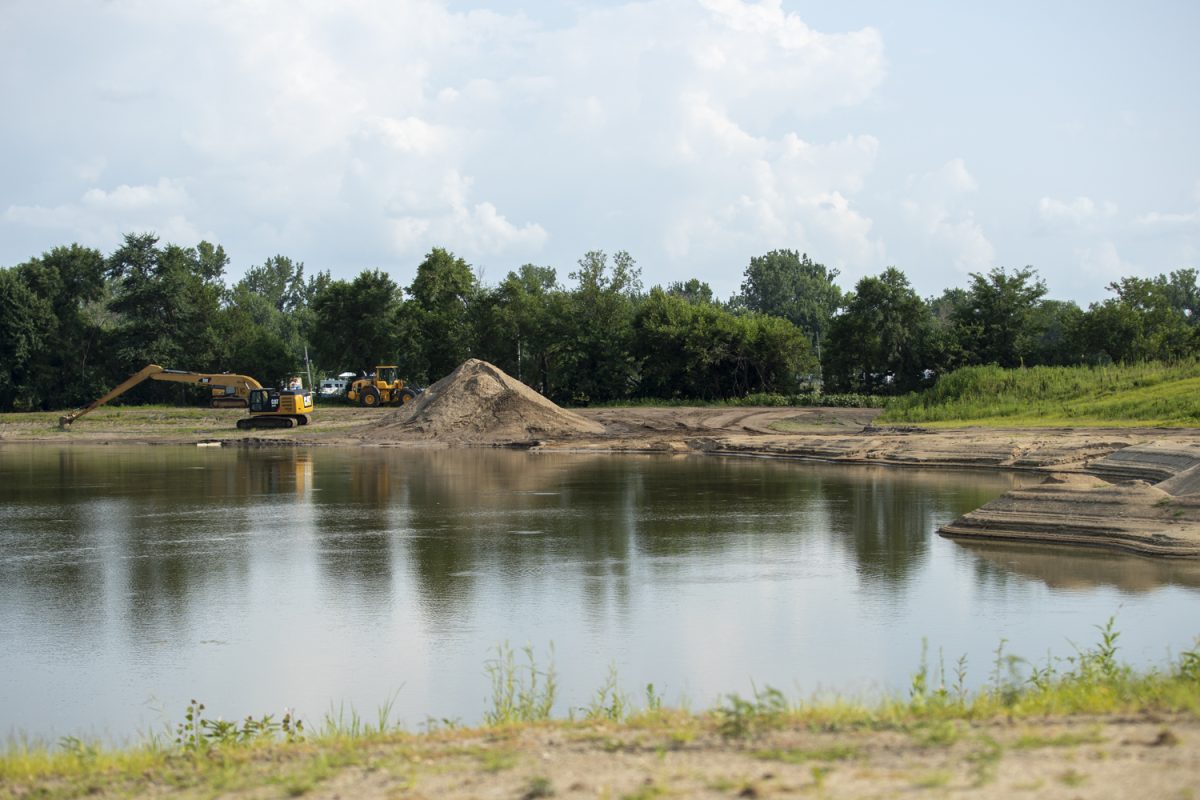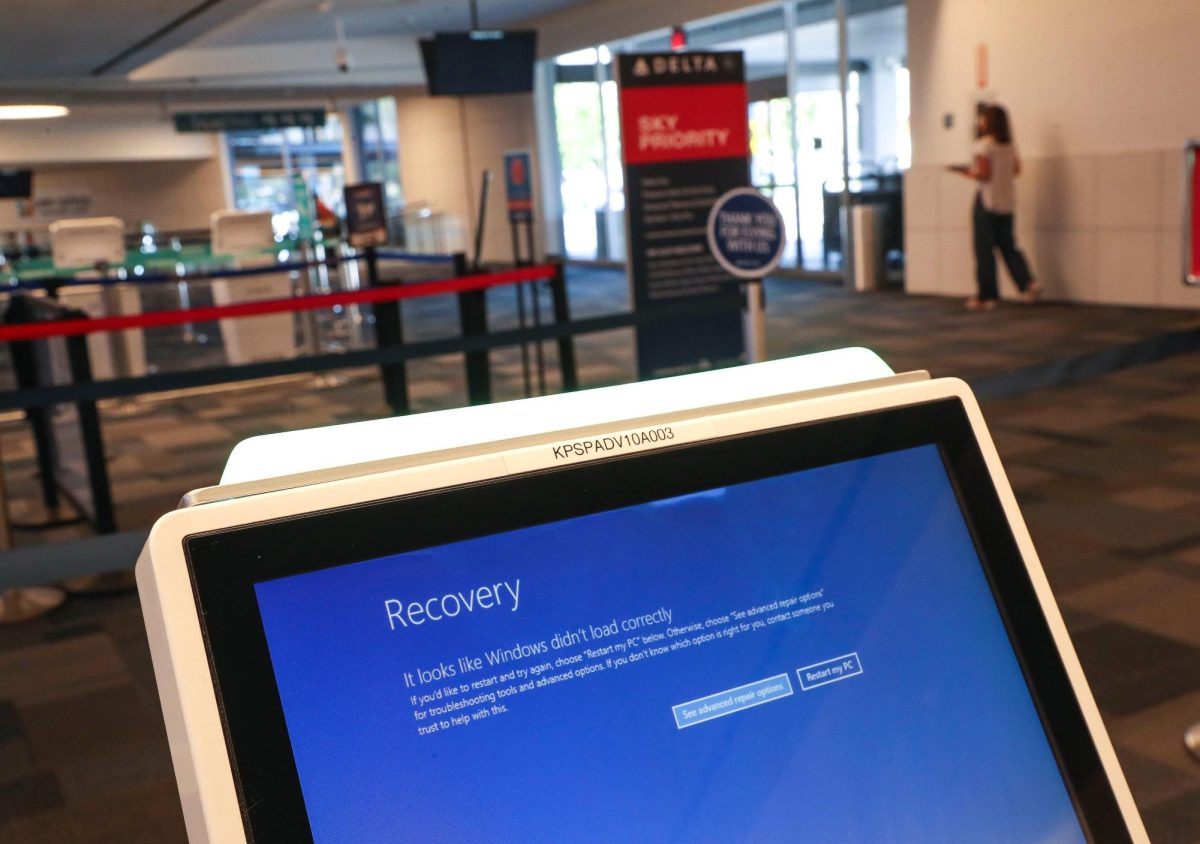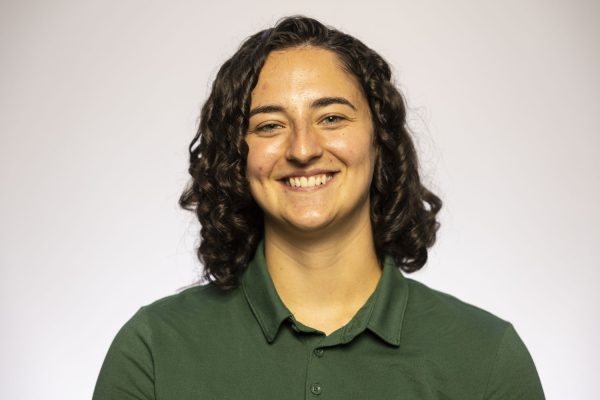What was meant to be a night of truth-telling and healing turned into conflict at an Iowa City Ad Hoc Truth and Reconciliation Commission event Thursday night at The James Theater.
Thursday’s event was part of a series of four events during the week where community members and commissioners gathered at various local venues to share their experiences with racial injustice in the community, especially regarding law enforcement.
The Truth and Reconciliation Commission was created in 2020 by the Iowa City City Council as a response to civil unrest in Iowa City as a result of George Floyd’s murder. The commission is tasked with gathering community experiences with racial injustice and using this research to recommend policy changes to the council.
As part of this task, the commission has carried out fact-finding and truth-telling events.
Fact-finding events consisted of looking over and reflecting on research about local data on police safety and criminal justice. Truth-telling events — which is what Thursday was — consisted of community members sharing their experiences with public safety and community justice in Iowa City.
The event on Thursday started with a dinner and opening ceremony from local Native American community members. Then, community members were invited to share their personal experiences and answer questions from commissioners and attendees about the details of their experiences and what could have improved them.
Eventually, Truth and Reconciliation Commissioner Chad Simmons began sharing his life experiences along with his longtime friend, who joined the meeting via Zoom. Simmons identified his friend by the name “Big City” and told the crowd he was a retired police officer from Chicago.
Around a dozen attendees from the community were present at the event as well as several Truth and Reconciliation commissioners and the commissioner’s facilitators, which are outside organizations that have been helping the commission conduct these events.
In May, the Iowa City City Council approved over $400,000 for the commission to hire four different facilitators.
The facilitators at Thursday’s event were Melinda Salazar and David Ragland, who are with ThinkPeace. The funding allocated for this facilitator group is almost $100,000, according to the contract agreement.
Several times throughout Simmons’ presentation, Ragland approached him and seemingly tried to get Simmons to conclude. Simmons and his invited speaker continued by sharing their stories, and several community members and commissioners asked the speaker questions about his experiences.
Eventually, Ragland once again approached Simmons and wrestled the microphone away from him. A small scuffle and shouting then ensued.
Ragland said Simmons should not have invited his friend — a police officer from outside the community — to speak and that the speaker was doing more harm than healing. The conversation quickly became heated, with Ragland calling Simmons a racial slur.
More shouting from attendees and commissioners ensued, and Ragland was then asked to leave the building. Chastity Dillard, the Truth and Reconciliation Commission chair, told the room to take a brief break.
Around 10 minutes later, the event began again, and a healing circle was held with commissioners and remaining attendees.
Healing circle attendees were invited to go around the circle, introduce themselves, share a personal shortcoming, honor an ancestor or loved one, offer a message of hope, and express gratitude.
“My shortcomings are the radical edge of truth can be painful and angering and letting it unleash sometimes,” Ragland said.
The healing circle concluded with a traditional song of gratitude and an opportunity for each attendee to greet and shake hands with one another.
V Fixmer-Oraiz, a Johnson County supervisor and facilitator for the commission, said the process of reconciliation is a “messy” one and situations like this can arise when emotional stories are shared. Now, the commission will learn from this event and help those affected heal from the incident, they said.
Emma Jane contributed to this report.





